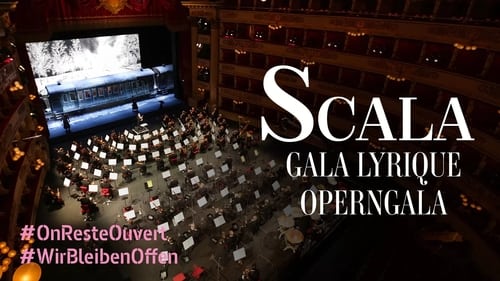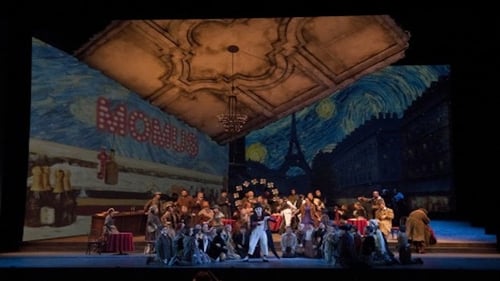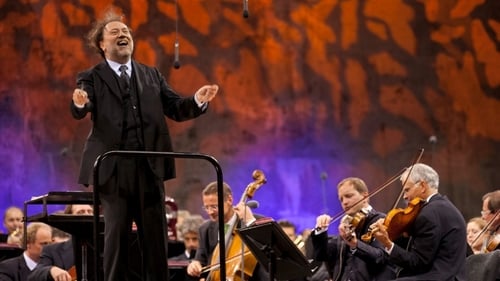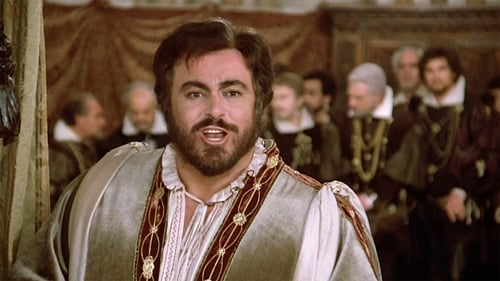
Riccardo Chailly
Birth : 1953-02-20, Milan, Italy
History
Riccardo Chailly, who was born in 1953 in Milan, studied at the Conservatories of Perugia, Rome, and Milan and at the Accademia Musicale Chigiana, beginning his career as an assistant to Claudio Abbado at La Scala in Milan. Chailly was appointed Music Director of the Berlin Radio Symphony Orchestra in 1980, and in 1988 he moved to the same position with the Royal Concertgebouw Orchestra Amsterdam, which he helmed for sixteen years. From 2005 to 2016, Riccardo Chailly served as head of the Leipzig Gewandhaus Orchestra; starting in 2015, he became Music Director of La Scala in Milan, and since the summer of 2016 he has held the position of Music Director of the Lucerne Festival Orchestra. Chailly regularly conducts such leading European orchestras as the Berlin and Vienna Philharmonics, the Bavarian Radio Symphony Orchestra, the London Symphony Orchestra, and the Orchestre de Paris. In the United States, he has worked with the New York Philharmonic, the Cleveland and Philadelphia Orchestras, and the Chicago Symphony Orchestra. As an opera conductor – in addition to his performances at La Scala – he has appeared at the Metropolitan Opera in New York, the Royal Opera House in London, Zurich Opera, the Bavarian and Vienna Staatsoper companies, Chicago Lyric Opera, and San Francisco Opera. Riccardo Chailly has received many prizes for his more than 150 CDs, including two Echo Klassik Awards (in 2012 and 2015); Gramophone magazine chose his account of the Brahms symphonies as Recording of the Year in 2014. Riccardo Chailly is a Grand’Ufficiale della Repubblica Italiana, Cavaliere di Gran Croce, and a Knight in the Order of the Netherlands Lion. In 1996 he was made an Honorary Member of the Royal Academy of Music in London, and in France he has been an Officier de l’Ordre des Arts et des Lettres since 2011.

Conductor

Maestro d'orchestra

Director
The Seven Deadly Sins tells the story of two sisters, Anna I and Anna II. The sisters set out from the banks of the Mississippi River in Louisiana to find their fortune in the big cities, intending to send their family enough money to build a little house on the river. Along the way they encounter the seven deadly sins. Meanwhile, the fleshpots of Mahagonny attract many visitors, but prove disappointing and expensive; God orders the inhabitants to hell, but they revolt, claiming they are there already"

Conductor

Conductor

Conductor
First staged at the Teatro La Fenice in 1846, Verdi’s ninth opera, Attila, returns to the stage of La Scala on December 7th. Following the inauguration of the 2015-2016 Season with Giovanna d’Arco and in anticipation of Macbeth, with Attila Musical Director Riccardo Chailly continues his study of Verdi’s early works, renewing a successful collaboration with creative director Davide Livermore that began with his acclaimed production of Donizetti’s Don Pasquale for La Scala. In this complex opera Verdi experiments with fresh perspectives, featuring spectacular historical settings, introspective angles and moral uncertainties. Attila demands of its performers not only passion and confidence, but also the ability to find subtle accents and psychological nuances.

Conductor
"Giovanna d'Arco; ossia, la pulzella d'Orléans" is an operatic dramma lirico with a prologue and three acts by Giuseppe Verdi to an Italian libretto by Temistocle Solera. The opera partly reflects the story of Joan of Arc and is based on a play by Friedrich von Schiller, although claimed by the librettist to be "an entirely original Italian drama." If the thought of Anna Netrebko strutting her stuff in a suit of armour and tin hat sets your factor tingling then this is a must. It's an inconsistent opera but has some quite wonderful music along the way. The rest of the cast is good and the production won't offend either. Get it for Ms Netrebko's incredible performance alone.

Conductor

Conductor

Director

Self
The 200-year-old story of Milan’s illustrious opera house, La Scala, home to the great tenor Placido Domingo, conductor Arturo Toscanini and acclaimed soprano Maria Callas.

Conductor

Conductor
Visually this is a gripping production which captures the drama of this opera perfectly. It's downright exciting! and I found the singing, acting, and orchestral playing reasonably fine. I found only one major problem with it, a problem that kept Puccini for quite a few years. Turandot has been looking for an opportunity to kill Calif and Calif has singlemindedly tried to get Turandot to love and wed him focusing on her and ignoring a better looking girl who loves him truly. The problem is how to get the audience to applaud the match once Calif gets his wish. Puccini couldn't figure out how to do it. The traditional quick ending doesn't do it, and Berio's attempt is longer , tries its best, but ends up making it plain this is one wierd couple.

Conductor
The musical notes of this Puccini masterpiece provide the starting point and foundation for a new, highly successful collaboration between Riccardo Chailly and Davide Livermore. In their interpretation, there is “no moment, no movement, that goes against the musical meaning” (R. Chailly). The result is an energetic, authentic, and atmospherically strong Bohème, “in which every sacred phrase receives its own orchestral colour, its own dynamic and its own expression.” (Corriere della Sera)

Director

Director
The audience knows that the performance of a Mahler symphony is not only a musical experience but is also emotionally effective' (Chailly). This counts especially for Mahler's enigmatic sixth symphony, an emotionally stirring challenge for both performers and listeners, while also one of the most impressive works in musical history. Chailly's interpretation with the Leipzig Gewandhaus Orchestra is 'intensely great' (Die Presse). 'Chailly uncompromisingly considers this sixth symphony through the lens of modernity; looking forward, not retrospectively staying in late romantic. In this celebrated orchestra, all sections splendidly come together and fulfill an 'open' sound, conserving whilst respecting its original beauty' (Salzburger Nachrichten).

Conductor
The Leipzig Gewandhaus Orchestra and their Music Director Riccardo Chailly have already acquired legendary status – glorious reviews and many awards for their recordings testifying to their continuing success. At Leipzig’s International Mahler Festival, to mark the centenary of Mahler’s death, they performed his monumental Second Symphony in the Gewandhaus – together with two marvellous soloists and choral forces quite beyond compare. About the final movement the composer said: “The increasing tension, working up to the final climax, is so tremendous that I don’t know myself, now that it is over, how I ever came to write it.” The painting “Morgenrot” was chosen by internationally acclaimed artist Neo Rauch to feature on the cover of this release on DVD and Blu-ray.


Conductor
The Waldbühne in Berlin, one of the most appealing outdoor amphitheatres on the European continent, is the home of the Berliner Philharmoniker’s summer concerts. With audiences of more than 20,000, these are some of the most popular classical music concerts in the world. Riccardo Chailly is famous for having one of the broadest and most eclectic repertoires. Here, under his baton, the orchestra presents perennial favourites by Shostakovich, Rota and Respighi. Live recording from the Waldbühne, Berlin, 23 August 2011, directed by Kasten Henning, produced by Jan Bremme. TV Producer: Dorothea Diekmann, RBB. Repertoire
Dmitry Shostakovich: Suite No. 2 for Jazz Orchestra (Suite for Variety Orchestra), Lady Macbeth of Mtsensk Suite – Allegretto; Nino Rota: ‘La Strada’ Ballet Suite; Ottorino Respighi: Fountains of Rome • Pines of Rome • Danza gueresca ‘Belkis’; Paul Lincke: Berliner Luft

Self
In Search of Beethoven offers a comprehensive documentary about the life and works of the great composer. Over 65 performances by the world's finest musicians were recorded and 100 interviews conducted in the making of this beautifully crafted film. Eleven interviews are included in the Extras and Six complete movements.

Conductor
Tosca, features an outstanding cast, including Catherine Malfitano in the title role, Bryn Terfel as Scarpia (his role debut), and Richard Margison as Cavaradossi. The visually spectacular staging by Nikolaus Lehnhoff brings the world of James Bond to Puccini's operatic thriller. Modern yet sinister sets and costumes create a fresh and at times horrifying interpretation, a bold departure from traditional stagings, of this classic work. Riccardo Chailly conducts the Royal Concertgebouw Orchestra and the chorus of The Netherlands Opera.

Conductor
Early recordings of Franco Zeffirelli's 2006 production of Verdi's opera which saw Roberto Alagna's high-profile exit during the second performance. Egypt and Ethiopia are at war. Radames is appointed commander of the Egyptian forces by the King, whose daughter, Amneris, loves Radames. It is in fact Amneris' Ethiopian slave Aida whom Radames loves. Ramades wins the war against the Ethiopians, capturing Aida's father Amonasro in the process. On his return to Egypt he faces a choice between marrying Amneris or betraying his country through his love for Aida.

Music Director
Early recordings of Franco Zeffirelli's 2006 production of Verdi's opera which saw Roberto Alagna's high-profile exit during the second performance. Egypt and Ethiopia are at war. Radames is appointed commander of the Egyptian forces by the King, whose daughter, Amneris, loves Radames. It is in fact Amneris' Ethiopian slave Aida whom Radames loves. Ramades wins the war against the Ethiopians, capturing Aida's father Amonasro in the process. On his return to Egypt he faces a choice between marrying Amneris or betraying his country through his love for Aida.

Riccardo Chailly conducts the Gewandhausorchester Leipzig and pianist Martha Argerich in this 2006 celebration of the work of Robert Schumann (1810-1856), filmed at Leipzig, Germany's famed Gewandhaus. Selections include Schumann's Piano Concerto in A Minor, "Von Fremden Ländern und Menschen" from "Kinderszenen" and Symphony no. 4 in D Minor.

Music Director
Live performance from Oper Leipzig, 26 November 2005.

A documentary based on Gustav Mahler's 9th Symphony. Riccardo Chailly is conducting and analyzing the four movements of the symphony.

Self - Conductor
Documents the interpretations of Gustav Mahler's compositions by conductors Bernard Haitink, Riccardo Chailly, Riccardo Muti, Claudio Abbado, and Simon Rattle, who detail the special relationship they have with Mahler's work.

Attrazione d'Amore is a touching illustration of the unique relation that has developed between the Conductor Riccardo Chailly and his famous Royal Concertgebouw Orchestra. Voyage to Cythera navigates through wonderful musical quotes made of performances conducted by Berio, rehearsals, archival documents and interviews featuring Riccardo Chailly and Louis Andriessen.

Conductor
Gioacchino Rossini's sparkling version of the Cinderella story comes live from the Salzburg Festival with Ann Murray and Francisco Araiza as Cinderella and the Prince. Director Michael Hampe envisions La Cenerentola less as a fairy tale and more as a gently satirical comment on the nature of society and the relationship between people. Conductor Riccardo Chailly's masterly display of the Rossini style is visually matched by the opulent and elegant set designs by Mauro Pagano. 162 minutes.

Conductor
Claude D'Anna's film of Verdi's Macbeth is a gloomy affair, stressing the descent into madness of the principal villains. It's acted by the singers of the Decca recording of the opera (with two substitutions of actors standing in for singers) and the lip-synching is generally unobtrusive. The musical performance is superb, conducted by Riccardo Chailly with admirable fire, and sung by some of the leading lights of the opera stages of the 1980s. Shirley Verrett virtually owned the role of Lady Macbeth at the time, and she delivers a terrific performance, the voice equal to the role's wide register leaps and it's suffused with emotion, whether urging her husband on to murder or maddened by guilt in the Sleepwalking Scene. Leo Nucci's resonant Macbeth may lack the ultimate in vocal color and steadiness (his last notes of the great aria Pietà, rispetto, amore are wobbly) but he compensates with intensity in both singing and acting.

Conductor
I Vespri Siciliani must me Verdi's most underrated masterpiece. Most people are put off by the fact that it has 5 acts, therefore they conclude that it must be incredibly long. It is long but not as long as some people may fear as most of the acts are under half an hour each. The total length of the DVD in question is 171 minutes, just under 3 hours, including titles at the beginning, applauses and curtain calls between the acts and at the end. The opera contains Verdi's most powerful overture and a number of very elegant arias, duets and ensembles for the principals.

Music Director
Live from La Scala Saturday 06 July 1985

Conductor
Rigoletto is a jester in the court of the Duke of Mantua. He has a hunch-back and he's rather unattractive, but he's good at his job of humiliating the courtiers for the amusement of the Duke. The courtiers, of course, are not amused. The Duke is a ladies man who feels his life would be meaningless if he couldn't chase every skirt he sees. In fact, we learn as the opera begins that he's recently been noticing a young lady every Sunday on her way to church, and he's vowed to have his way with her. What nobody realizes is that the girl is the jester's beloved daughter, Gilda, and that Gilda has seen the Duke every Sunday and is smitten with him. Suddenly Count Monterone appears at court, furious that the Duke has seduced his daughter. Rigoletto ridicules Monterone, the Duke laughs, and Monterone casts an awful curse on both of them. Later, the courtiers discover that Rigoletto is secretly living with Gilda...

Music Director
Rigoletto is a jester in the court of the Duke of Mantua. He has a hunch-back and he's rather unattractive, but he's good at his job of humiliating the courtiers for the amusement of the Duke. The courtiers, of course, are not amused. The Duke is a ladies man who feels his life would be meaningless if he couldn't chase every skirt he sees. In fact, we learn as the opera begins that he's recently been noticing a young lady every Sunday on her way to church, and he's vowed to have his way with her. What nobody realizes is that the girl is the jester's beloved daughter, Gilda, and that Gilda has seen the Duke every Sunday and is smitten with him. Suddenly Count Monterone appears at court, furious that the Duke has seduced his daughter. Rigoletto ridicules Monterone, the Duke laughs, and Monterone casts an awful curse on both of them. Later, the courtiers discover that Rigoletto is secretly living with Gilda...

A passionate conductor and composer, Gustav Mahler never received the recognition he deserved during his lifetime but has since come to be known as a prominent post-Romantic master of song and symphony. Filmed in Vienna, Austria; Budapest, Hungary; Hamburg, Germany; and the Czech Republic, this documentary explores the Bohemia-born Mahler's life and inspirations, from his turbulent childhood years to his ambitious adult career.

Felix Mendelssohn
Concerto for Violin and Orchestra in E minor, Op. 64
Ludwig van Beethoven
Concerto for Violin and Orchestra in D major, Op. 61 Nikolaj Znaider, violin
Riccardo Chailly
Gewandhausorchester Leipzig

















